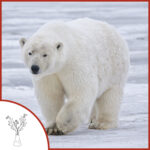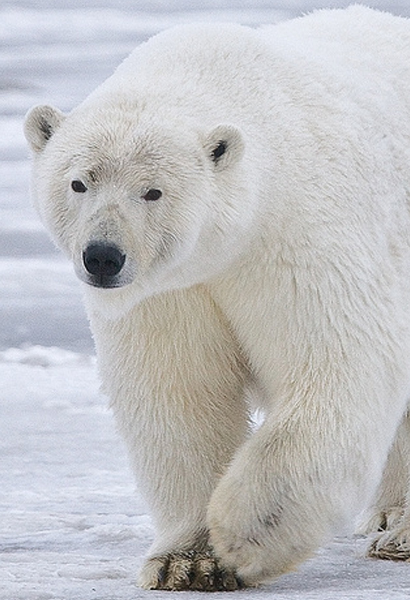

Birth: Feb 24, 1943
Specialty: Veterinary Medicine
Major Contributions:
Studied fur seals
Wildlife veterinarian for Alaska Dept. of Fish & Game
Image Source: Wikimedia
February 27th is International Polar Bear day. Today we will explore the career of someone who has studied polar bears and other arctic species: Alaska Department of Fish and Game Wildlife Health and Veterinary Services Lead veterinarian, Dr. Kimberlee Beckmen.
As a child, Beckmen wanted to be a marine biologist. She earned her bachelor’s degree from Florida Atlantic University and went to Miami to earn her master’s, both in marine biology. Returning to her home state, she attended veterinary school at the University of Illinois at Urbana-Champaign. She went on to a zoo internship in South Carolina, and then a marine mammal pathology fellowship in California, performing necropsies on seals, sea lions, whales and dolphins.
Beckmen moved to Fairbanks to work on her Ph.D. in 1994. While studying fur seals for her doctorate, she also worked with polar bears for the U.S. Geological Survey, and grizzly bears and moose with representatives from Alaska Fish and Game. In 2002, when the Fish and Game veterinarian retired, Beckmen was ready to take on her “dream job”.
She is often called to examine the remains of wild animals to determine the cause of death or to investigate parasites or unusual tissues. “A lot of the work is like being a medical examiner,” Beckmen said in an interview. “The investigative work is fun. It’s satisfying when you can figure out what happened.” Keeping devastating wildlife illnesses such as Chronic Wasting Disease out of Alaska is also a priority. In addition, she does disease surveillance among wildlife populations, helps with the capture of wildlife so they may be radio collared and counted, and educates humans on how to coexist with the “untamed critters” sharing their space.
As part of these education efforts she was interviewed for KTVF news in 2021 about the negative impact of feeding wild animals. Not only does this practice teach wildlife like moose and bear to not fear humans resulting in them becoming a public nuisance and sometimes having to be euthanized, but it also is a danger to their physical health and can lead to sickness and in extreme cases the death of the animal. Dr. Beckman stresses that it is important to secure your garbage to keep from unintentional feeding of animals as well as never feeding wildlife intentionally.
Written by Nicole Hutchison
Sources:
Wildlife Veterinarian Kimberlee Beckmen: Medical Examiner, Surgeon, and Researcher
Solving the Mystery of the South Fork Wolf
Parasite Reminds Hunters Bear Meat Must Be Thoroughly Cooked
Fairbanks wildlife veterinarian warns of dangers in feeding wildlife
See Also:
